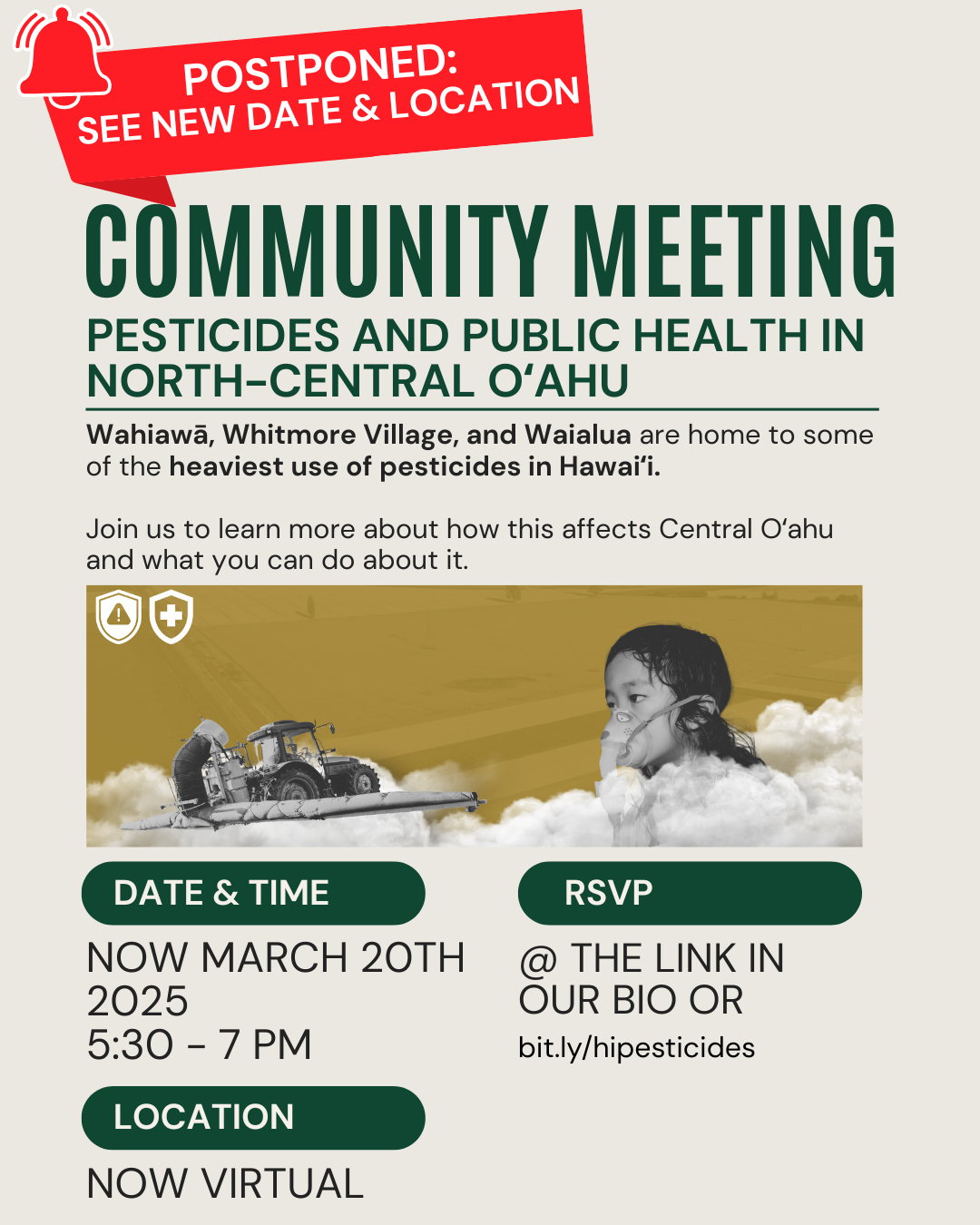
Fair & Sustainable Food Systems
HAPA was born out of a commitment to food systems justice, recognizing that food systems are fundamental to the public good and resilience.
In Hawaiʻi, the legacy of industrial agriculture spans back to the sugar and pineapple plantations, and now the region is known as "ground zero" for the agrochemical industry.
HAPA’s long-term vision for Fair & Sustainable Food Systems is to decrease pesticide use and extractive/toxic industrial-agricultural practices across Hawaiʻi and to grow our local food security through regenerative/ʻōiwi food systems.
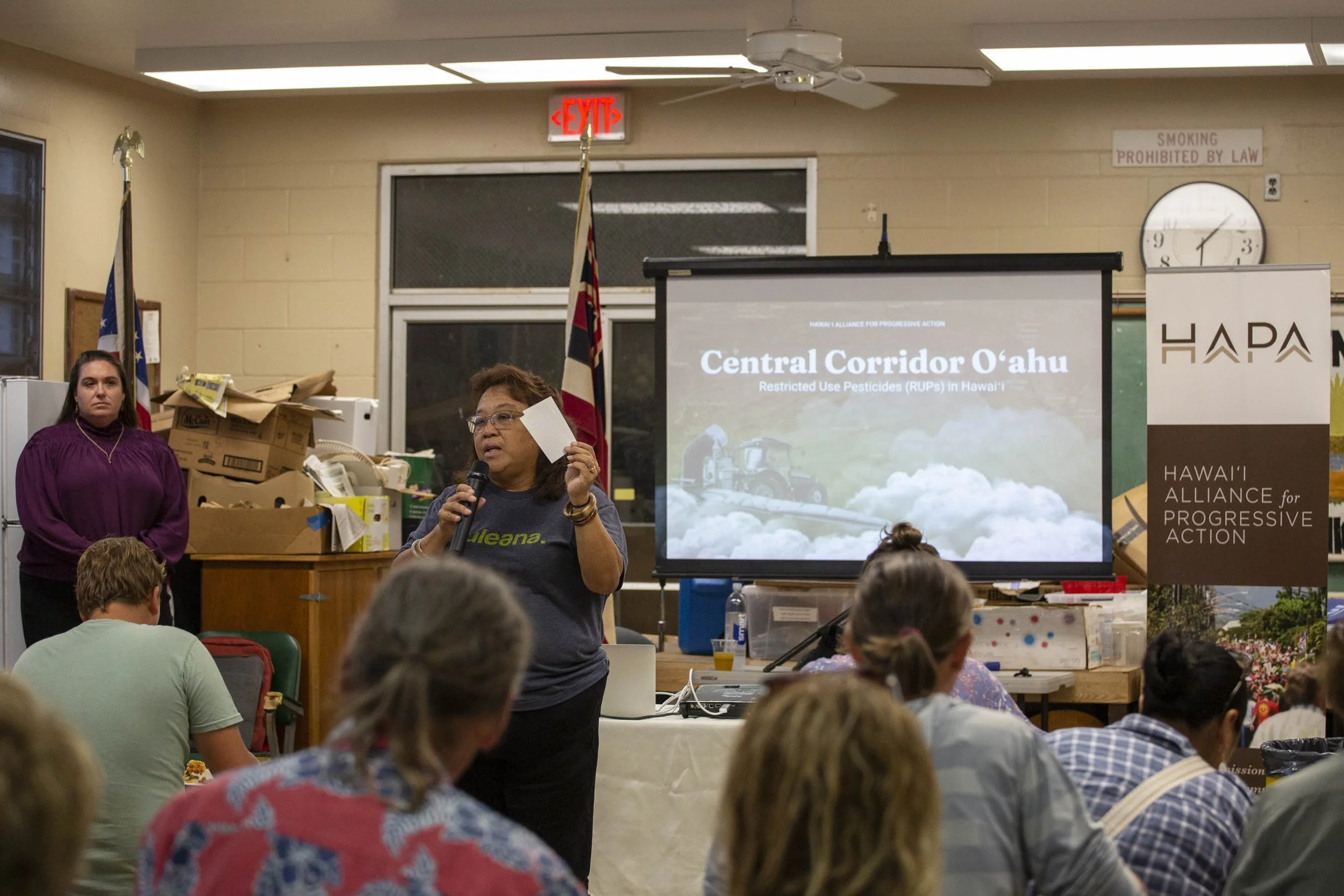
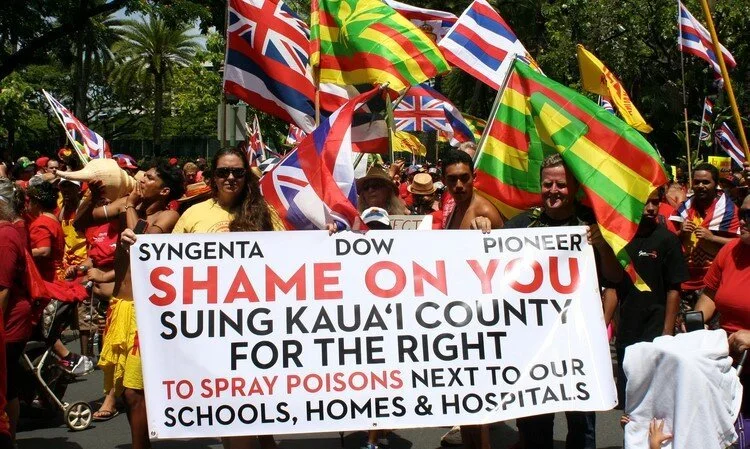
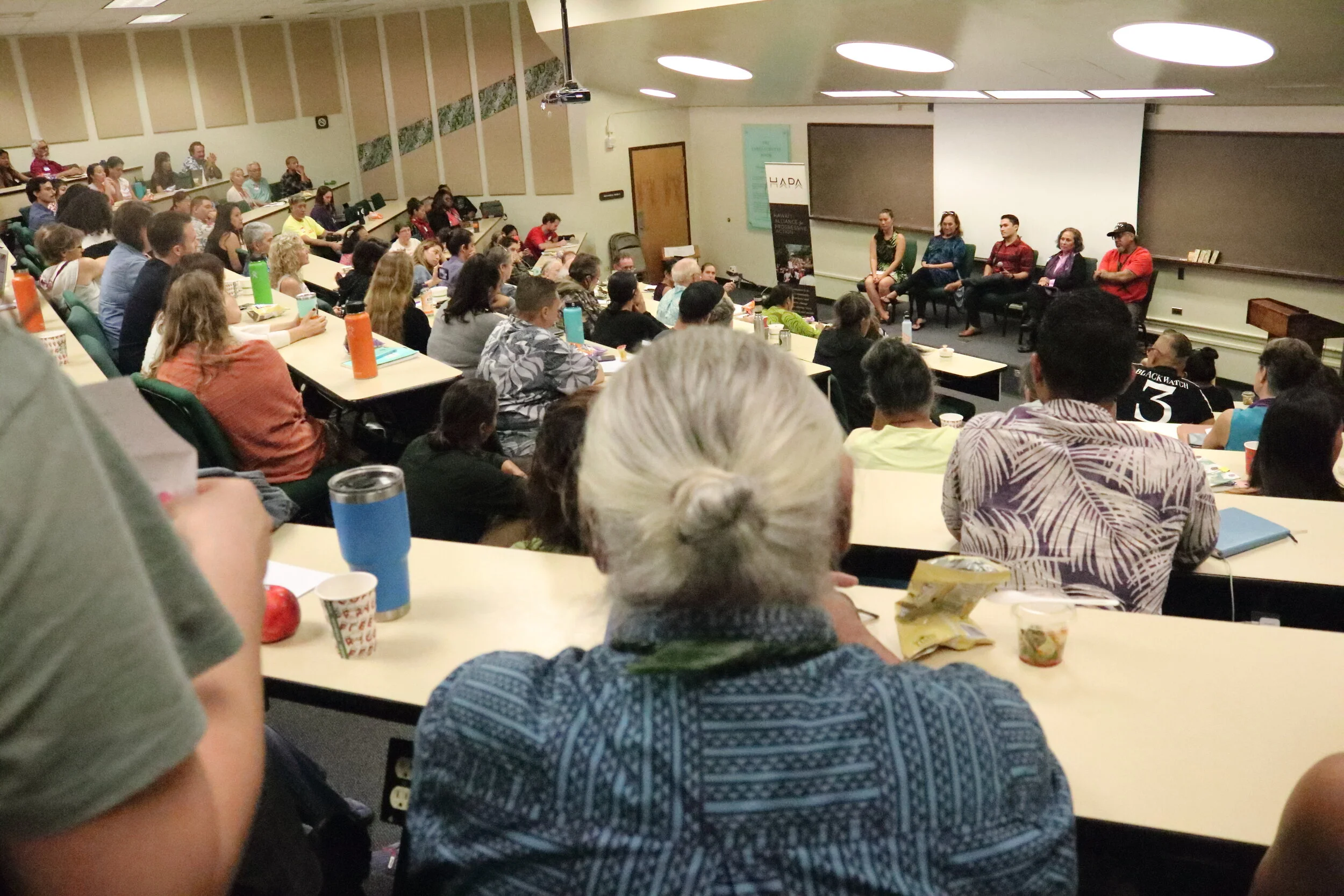
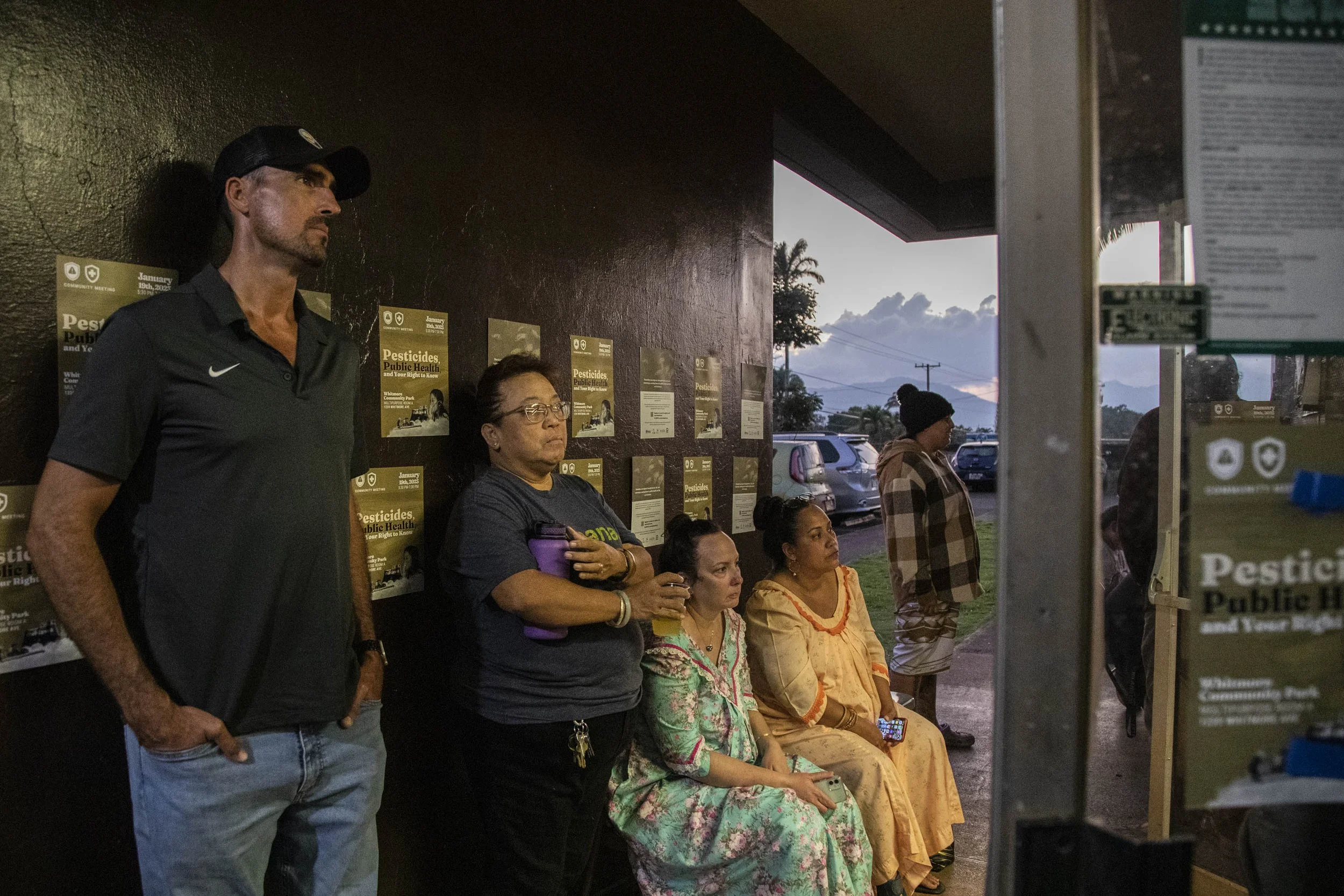
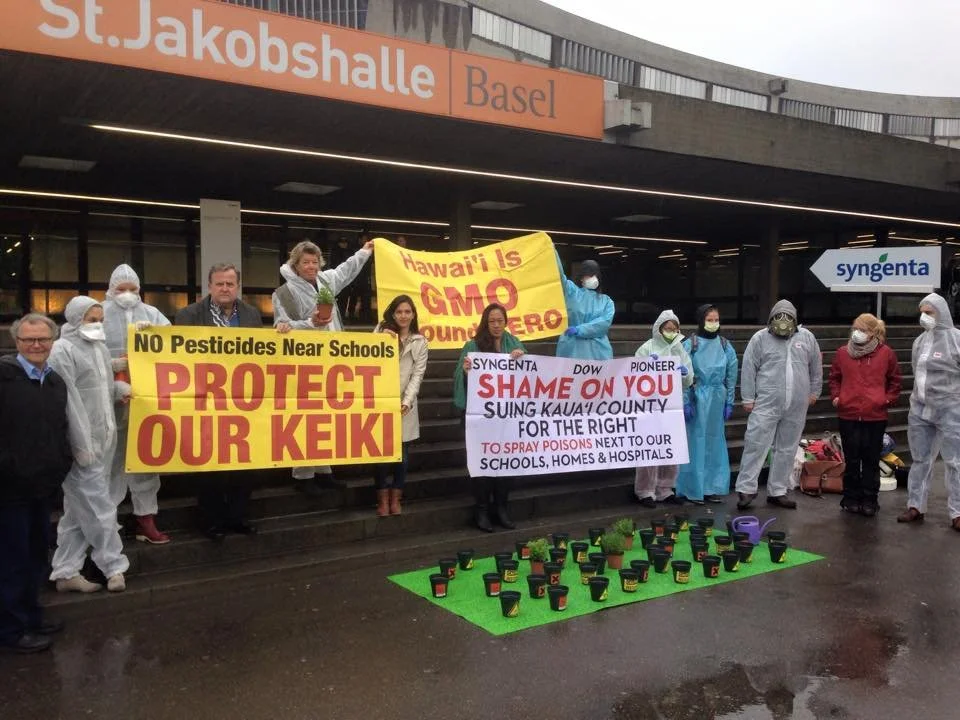
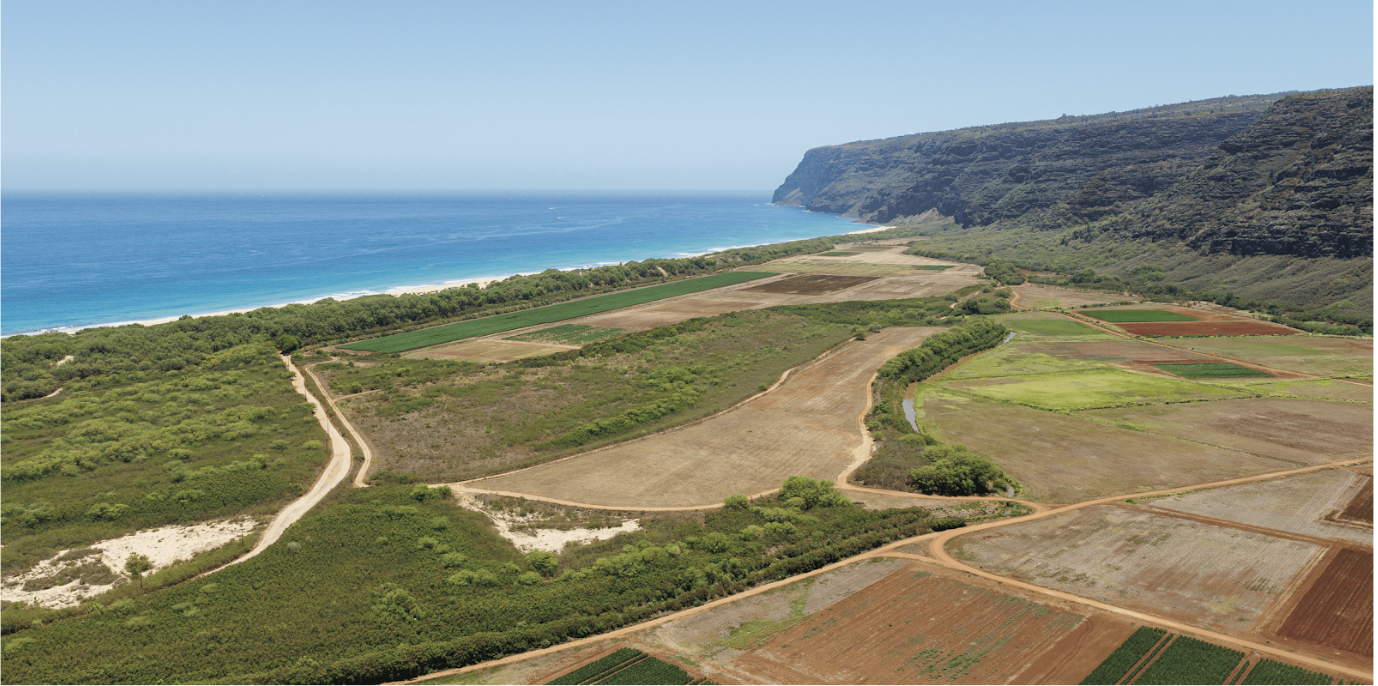
Pesticide-intensive industrial agriculture depletes the land of its health and vitality. HAPA works to transition from industrial systems toward regenerative and just food systems that center on Kanaka Maoli traditional practices and connection to place, mālama ʻāina.
Creating local, regenerative food systems not only increases food security but also mitigates climate catastrophe through carbon capture and reducing our dependence on imported food.
Our long-term vision looks like
Extractive, industrial-agricultural practices are replaced with regenerative and equitable local food production.
Communities, farmworkers, local ecosystems, etc., are protected from pesticide drift.
Hawaiʻi increases local food security from small-scale, regenerative local food producers.
Increased restoration of traditional and customary food systems, and the ecosystems they depend on, is led by the communities connected to place.
Public agricultural lands and waters are reclaimed from corporate capture for the public good, farmers engaged in sustainable local food production have access to those lands and waters.

Policy & Advocacy
HAPA engages in various activities to foster a healthy, sustainable, and equitable food system. This includes creating educational resources, engaging with the community, organizing grassroots initiatives, and advocating for policy interventions at the county and state levels. We aim to support a vibrant agricultural economy in Hawaiʻi, free from harmful toxins. To .achieve this, HAPA takes a proactive role by spearheading and endorsing a range of comprehensive policies during the state legislative session.
Our Legislative Priorities
CAMPAIGN
Pesticides & Public Health
Public Health informing reports on Restricted Use Pesticides came out in 2019, 2020, and 2021; HAPA is engaging communities exposed to the heaviest pesticide use to alert them to the potential ramifications to their health and environment.
This campaign is the continuation of our work around Act 45. In 2019 the first year of state-mandated Restricted-Use Pesticides reports came out. In partnership with the Center for Food Safetyʻs science team, HAPA undertook to convert all the reports into a unified and comprehensive comparison. HAPA enlisted Center for Food Safety and GIS consultants to help us overlay this pesticide use in pounds over TMK parcels. This way, communities, residents, and workers can access the data and draw meaningful insights into what this exposure could mean for their health, families, waterways, and environment. We are now engaging with the communities most impacted by exposures: West Kauaʻi & Central Oʻahu. To learn more about this work, you can visit our campaign page.








